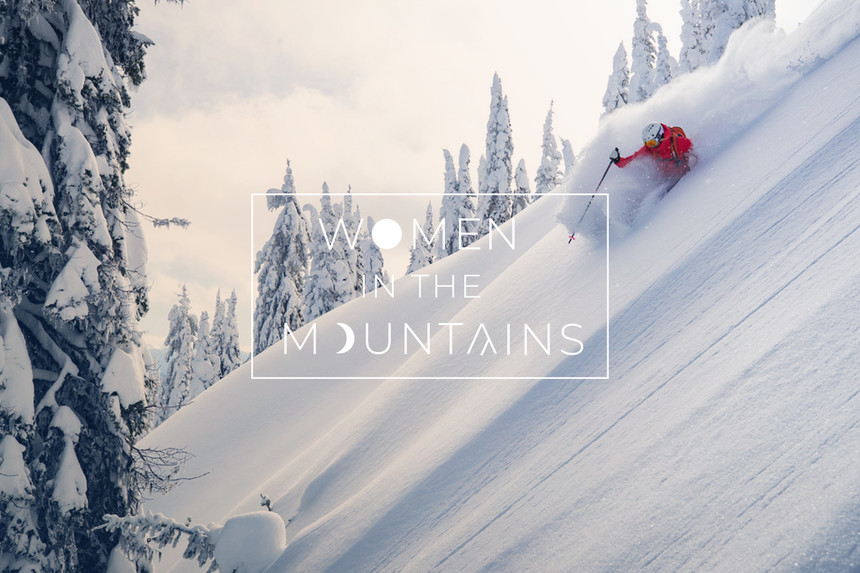 In this installment of Women in the Mountains, we caught up with skier, podcast host, and climate change activist Amie Engerbretson. Hear why she's not tiptoeing around the subject of climate change anymore. Jeff Engerbretson.
In this installment of Women in the Mountains, we caught up with skier, podcast host, and climate change activist Amie Engerbretson. Hear why she's not tiptoeing around the subject of climate change anymore. Jeff Engerbretson.
“You’re a hypocrite.” It’s a critique climate change activists know too well, and it knocks the wind out of you. Instead of addressing your argument, that jab points attention to whatever flaws you might have. The fact you still drive a car, enjoy a nice steak here or there, or went on that trip to Europe and didn’t sail across the Atlantic like Greta Thunberg. It gets you thinking: Can I only care about climate change if I’m a vegan and completely devoid of fossil fuels?
Amie Engerbretson knows this dilemma all too well. As a professional skier, she’s seen the effects of climate change firsthand in the Sierra Nevada, where she was born and raised. Despite having concerns, fear kept her from speaking up. The angry comments on social media would play out in her head: Hypocrite, phony, or kook. Mind you, these are the “tame” ones. All this negativity left her feeling hopeless.
RELATED: 'Pretty Strong' Celebrates Female Climbers on the Big Screen
But then POW invited her to come to Capitol Hill last fall with a group of mountain athletes. Engerbretson donned her best pencil skirt and joined 44 other athletes to convince our lawmakers to care about what’s happening to our environment. She met with representatives from both parties and surprisingly heard lots about the outdoor places they loved. Turns out there’s more common ground than you think. She walked away feeling energized and realized that despite the negativity, there’s a lot of hope when it comes to climate change and has continued working with POW. Now she’s leading panel discussions with POW ambassadors and speaking alongside researchers and scientists for Protect Our Winter’s Outdoor State of Mind series.
No one is perfect, and neither is progression. Take skiing as an example. You’re going to stumble and fall many times before finally stomping a trick. The same goes for fighting climate change. It’s not a perfect process, but that’s okay. We sat down with Engerbretson to learn more about her climate change advocacy and why she’s not afraid to speak up anymore.
Amie recently interviewed Harvard professor Dr. Naomi Oreskes about the importance of trusting science, both in the COVID pandemic and in fighting climate change.
As someone who’s spent their whole life in the mountains, what changes are you seeing firsthand as a result of climate change?
Amie Engerbretson: In California—especially here in Lake Tahoe—the biggest changes we’re seeing are these extreme weather patterns. Of course, the wildfires have become worse too, but what I’ve noticed is that the weather patterns are changing. We would always get these big powerful storms in the Sierra. That’s typical for the Sierra, and it’s typical for the Sierra to have droughts as well. But now we’re seeing these storms come in with wind speeds that have never been recorded before. Instead of six feet overnight, we’re getting 12 feet overnight. That’s insane. No one can deal with that. That’s not good for skiing, because you can’t open the resorts because it’s so dangerous. The inconsistency with storms also changes the dynamics of avalanches in the backcountry. There are avalanche paths that we’ve never seen before, and deadly avalanche cycles that accompany these crazy weather patterns.
That’s what I find scary about climate change. It’s not just winters that are warmer. It means things like snowpacks are changing which could lend themselves to more dangerous avalanche conditions. There are all these small changes that most people don’t see.
AE: Yeah, for example, our June last year was strangely cold. It was because the Polar Vortex has started to split and it’s not operating normally. As a result, the Arctic had these record-breaking warm temperatures whereas it was frigid down here in California. Meanwhile, people would say, “climate change isn’t real—it’s so cold!” instead of recognizing that there’s a bigger problem going on here.
As a mountain athlete, you just have to become a bit obsessed with the weather to keep tabs on avalanche activity. So those are the things I pay attention to the most.
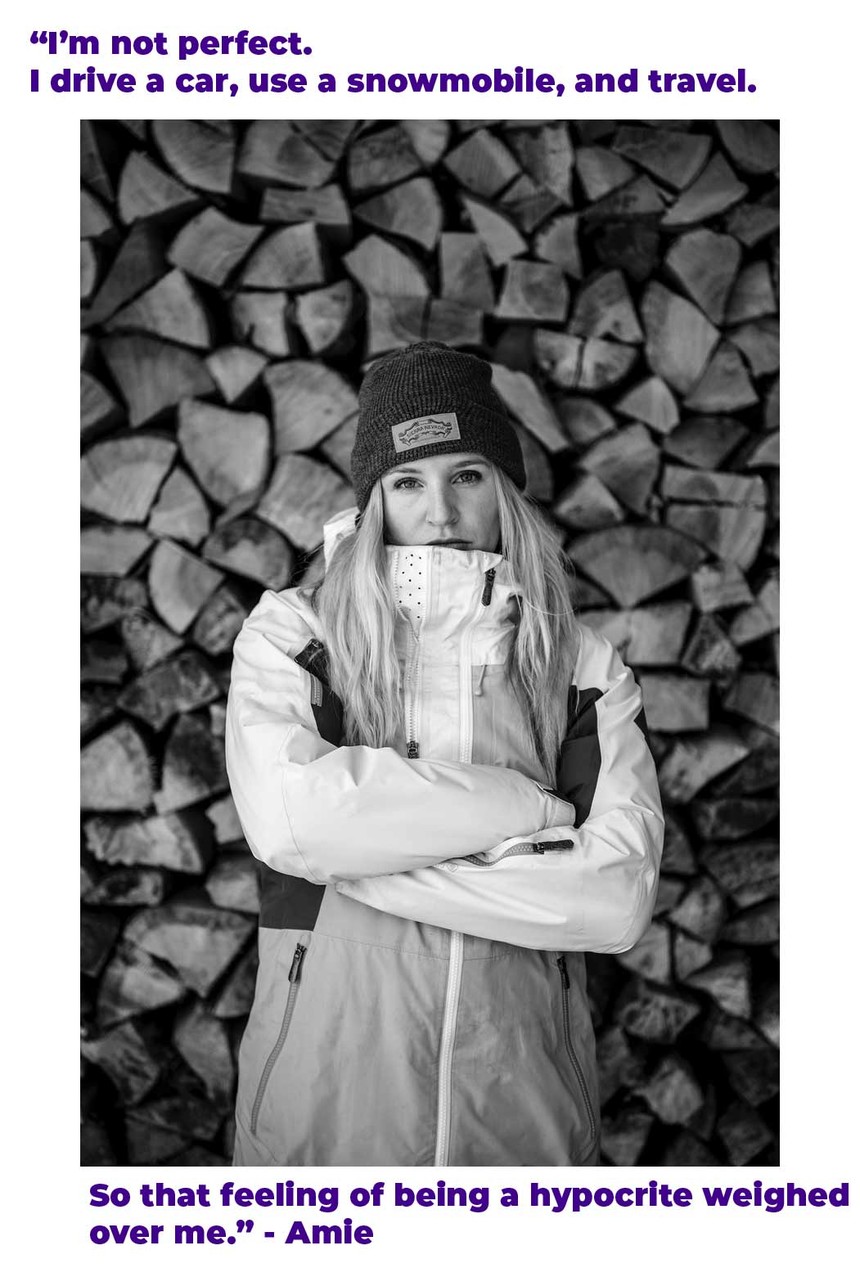 Guy Fattal photo.
Guy Fattal photo.
What inspired you to be vocal about climate change?
AE: I don’t think there was one “aha” moment that made me decide this was an issue. It was something that gradually grabbed my attention, and what made me step up was honestly finding the confidence to own it. This whole time I’ve been a POW supporter and would wear the hat or have the sticker on my water bottle around town, but I wasn’t really doing much past that. What kept me from doing more was feeling intimidated.
I was intimidated because I didn’t perceive myself as this widely smart person who could speak into science or politics. The subject matter alone was intimidating. I was also intimidated by the fear of hypocrisy. I’m not perfect. I’m not vegan. I drive a car, use a snowmobile, and travel. So that feeling of being a hypocrite weighed over me, and honestly, it’s keeping other people from feeling like they can speak out about climate change.
The turning point for me was when I got invited to Capitol Hill with Protect Our Winter for a lobby day. I went despite feeling really nervous about the situation. But my time there showed me that government and policy are by the people...actually doing politics. Breaking down that wall was huge. So, the more I’ve come to understand about climate-friendly policies and renewable energy, it’s shown me that these paths aren’t perfect, but they’re what we need.
At the end of the day, you don’t have to be perfect to make a difference. Perfection hinders progress.
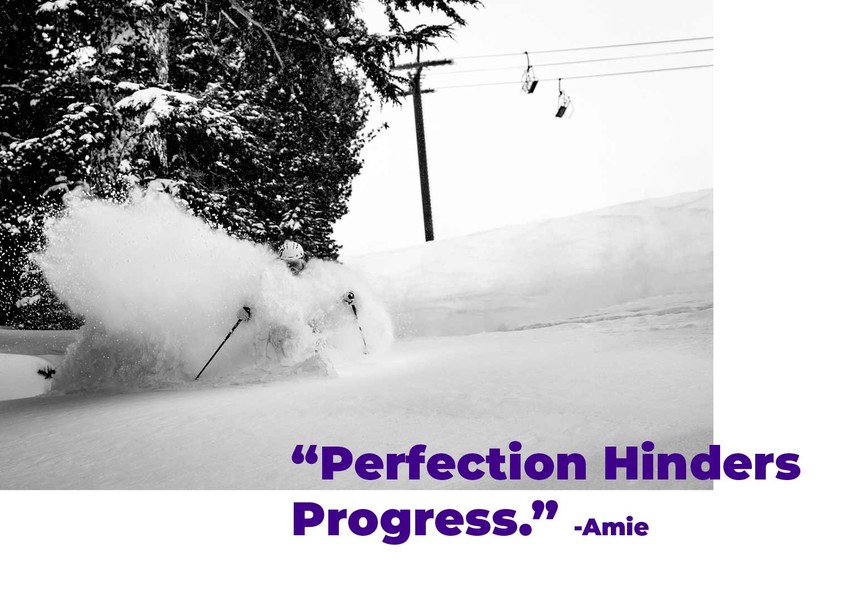 Jeff Engerbretson photo.
Jeff Engerbretson photo.
That’s a good point though because I think a lot of people get discouraged by climate change because they think their actions won’t make a difference.
AE: What I’ve learned from the science, especially from POW, this problem is so much bigger than anything one person can do. The only thing we can all do as individuals is to collectively use our voices. In regards to climate change that means using our voices to enact policies and push the government to support a positive way forward. As much as I appreciate those small changes people are making—like riding their bike to work or using a reusable mug—in the end, they’re just small changes. Right now we desperately need to urge our lawmakers to support a future we want to see.
Can you elaborate on what that looks like?
AE: There are some facts about the fossil fuel industry that are mind-blowing. The fossil fuel industry only contributes $337 billion to our GDP. Pharmaceuticals contribute about $430 billion. Meanwhile, the outdoor industry contributes $890 billion annually. So if you look at the way the government doles out aid, you’ll see that there’s a lot of aid given to fossil fuels. It’s an industry that takes a lot of government assistance to run, whereas the outdoor industry has never really engaged in that same kind of government interaction.
So when people ask where is the hope in climate change, it’s pushing our government to apply the same kind of priority, fiscal help, and attention to renewable energy as they have done so with fossil fuels. We can get there. It means we’ll have to burn fossil fuels to get to renewables, but that’s part of the deal. We can’t individually buy enough electric cars to make an impactful change. It needs to happen from the top down. Plus, when you learn more about renewables you realize not only is it great for the environment, but it’s beneficial for our economy. It’s a job builder too.
The data is pretty fascinating when you think about it.
AE: It’s mind-blowing. The outdoor industry is more than double the size of the GDP of the fossil fuel industry. Does that not blow your mind? Especially when you factor in the size of the outdoor industry—50 million strong. That’s more than the most populous state in the Union. When you talk about swing votes and swing states, the outdoor industry is one of them. We need to make this our top priority.
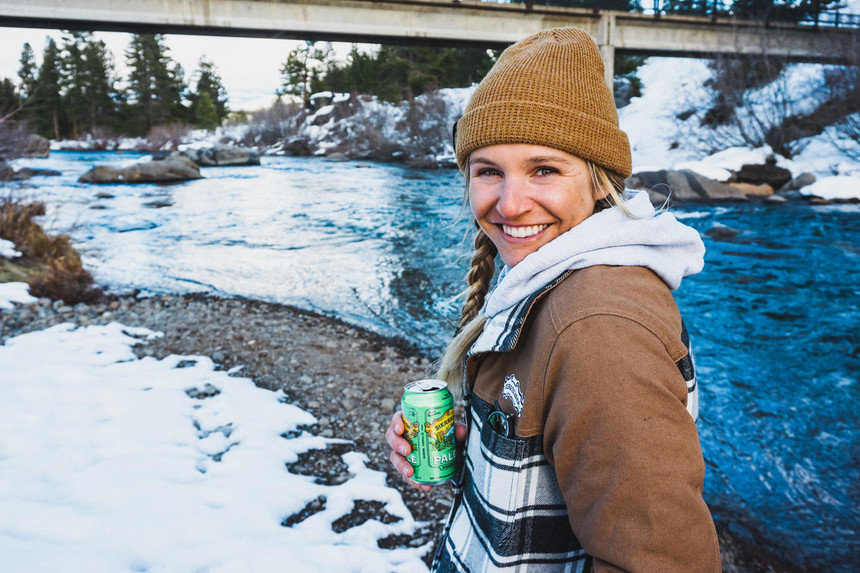 On top of working with POW, Amie also works with environmentally focused brands like Sierra Nevada. Todd Ligare photo.
On top of working with POW, Amie also works with environmentally focused brands like Sierra Nevada. Todd Ligare photo.
How did you originally become involved with Protect Our Winters?
AE: I’m from Tahoe, and Jeremy Jones is based here too. So when he created POW I was quick to support it. At most, my involvement was just donating something here and there and going to events. But going to D.C. with the team really changed things for me. Following that trip, there was an athlete summit in Moab, and it was this incredible training experience where we met with speakers and learned so much about climate change. Right after I literally called my boyfriend and said: “I’m running for mayor of Truckee,” because working with POW has made me realize that there’s a lot of untapped potential inside of me—and we all have that.
You don’t have to be special to care about these issues. It’s not a science issue. It’s not a political issue. It’s a humanity issue.
From your experience at Capitol Hill, how did lawmakers respond to the information you were presenting?
AE: Overall our group visited with 44 different lawmakers. My group visited eight lawmakers, and half of them were Republican, and none of them were climate deniers. When you go to meet a lawmaker—regardless of their political affiliation—they all generally love something about the outdoors. That’s your common ground with them. For me, that meant walking into the office of a congressman from Florida and connecting on our mutual love for the outdoors. I found that people wanted to talk about that the most—especially the places they love. They’re also sharing the changes they’re seeing because of climate change, and when you get talking to them you realize that within our government there’s actually only a small group of people who are climate deniers. Unfortunately, they just happen to be a very powerful and loud group.
It brings it back to this idea that climate change is a non-partisan issue. The outdoor state is not a blue state or a red state. If you told me a year ago I’d have a lovely conversation with a Republican representative from Florida I’d think you were crazy. But the reason that we can connect with each other is that he’s also part of the outdoor state.
It’s encouraging to hear that because politics have become so polarizing. So you can actually find common ground with people who share different viewpoints from you?
AE: I think there are more people than you’d imagine that are receptive to these ideas. But change has to be instigated from the top down in order to see something happen. The majority of lawmakers in Washington D.C. can be climate supporters but if the few people who are top-down decision-makers are not, then there’s only so much you can do to get around that.
It seems athletes are always dealing with the criticism that they’re hypocrites for caring about climate change. How do you deal with that comment?
AE: Yeah it’s really tough too because I’m not an athlete that’s choosing to go only foot-powered. That’s not where my passion lies in the mountains. I definitely get trolled, which I didn’t use to have on social media until I went to Washington D.C.
POW has been helpful with this, I’ll often email the folks over there about how to best respond. There’s a way you can talk about these issues where you can be inclusive rather than be exclusive. It doesn’t give these people as much as a chance to jump in and bully you. Of course, they’ll do it, but the more you present these topics with a message of inclusivity and how we’re all in this together as a group the less I get trolled. It’s all about the way you pitch it.
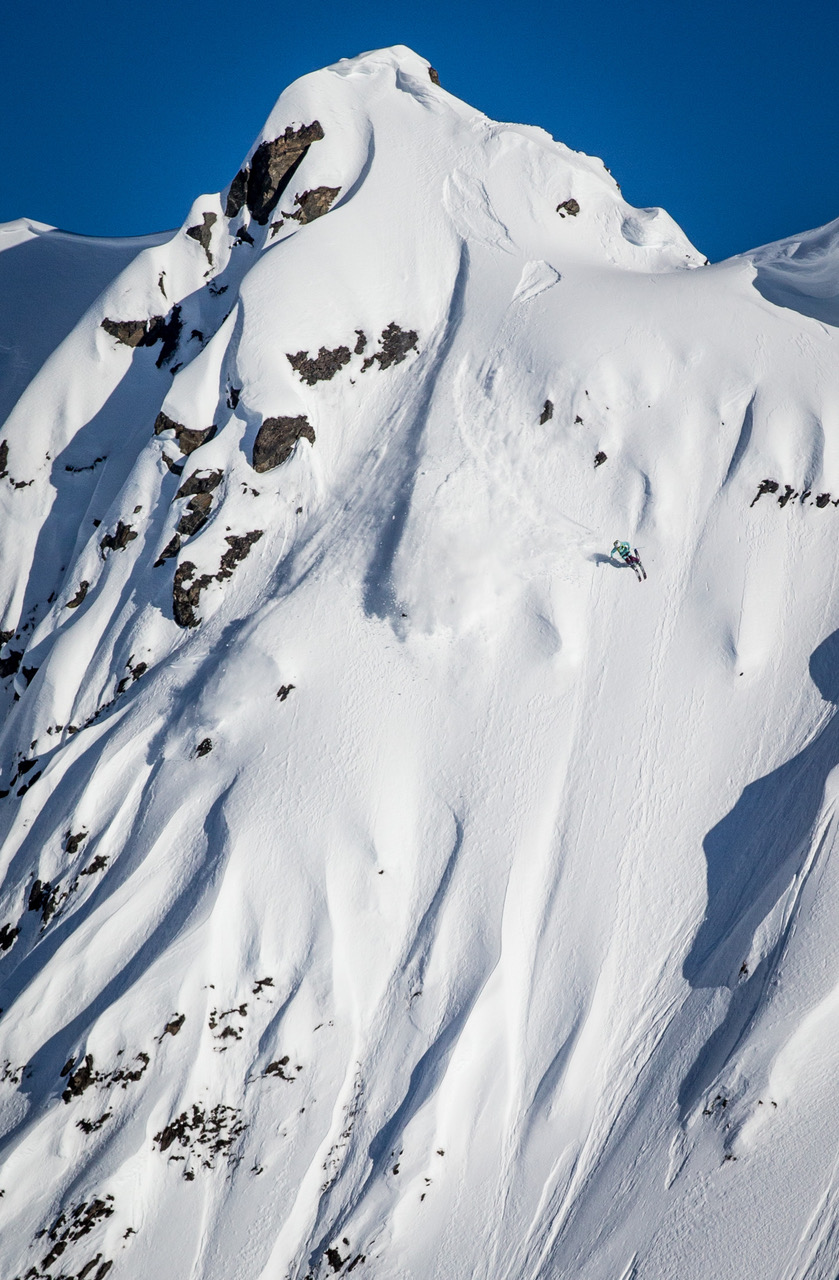 For Amie, speaking up about climate change is part of protecting the places she loves. Jeff Engerbretson photo.
For Amie, speaking up about climate change is part of protecting the places she loves. Jeff Engerbretson photo.
What kind of tools has POW given you to feel empowered?
AE: For one they’ve created a community, which is huge. They also have a lot of resources for digesting information. It’s all available on their website. Come Fall, the POW Action Fund will release a voter guidebook that will break down every single candidate’s environmental views and policies. You just punch in your zip code and it shows you everyone from presidential candidates to the local officials in your county. It’s tools like that make voting for the outdoors easier.
They also do a good job of being inclusive. Their goal isn’t to alienate anyone, so they’ve committed to being non-partisan. We’re taught to not be divisive.
Lastly, they’ve done a good job of connecting us athletes with interesting speakers and researchers. The Outdoor State of Mind campaign has been a good example of this. Chris Davenport did a talk with the CMO of Bank of the West. They’ve been trying to pair athletes with people that are outside of the action sports world.



__video_thumb.jpg)
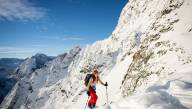

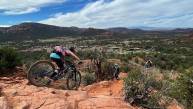
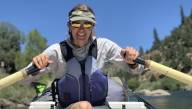

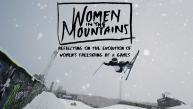
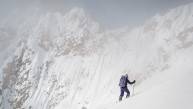


__video_thumb.jpg)
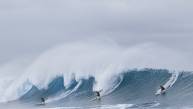
__video_thumb.jpeg)



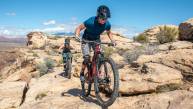
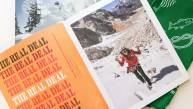
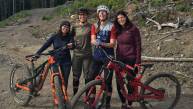
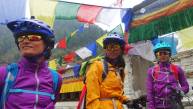
hynz
May 29th, 2020
Thank you for this wonderful content. Climate change really has a huge impact in today’s world. Apart from that I also agree that climate change also affects the outdoor industry from ski professionals up to landscaping contractors like wooden fence companies. Thus, it is important that the government also provide aid and assist us the same as other industries that are affected by this global crisis.
joanmelda
June 1st, 2020
Online political science essay writing help services are very common nowadays since there are very many students seeking Political Science Writing Services and political science research paper writing services.
https://researchpapers247.com/political-science-writing-services/